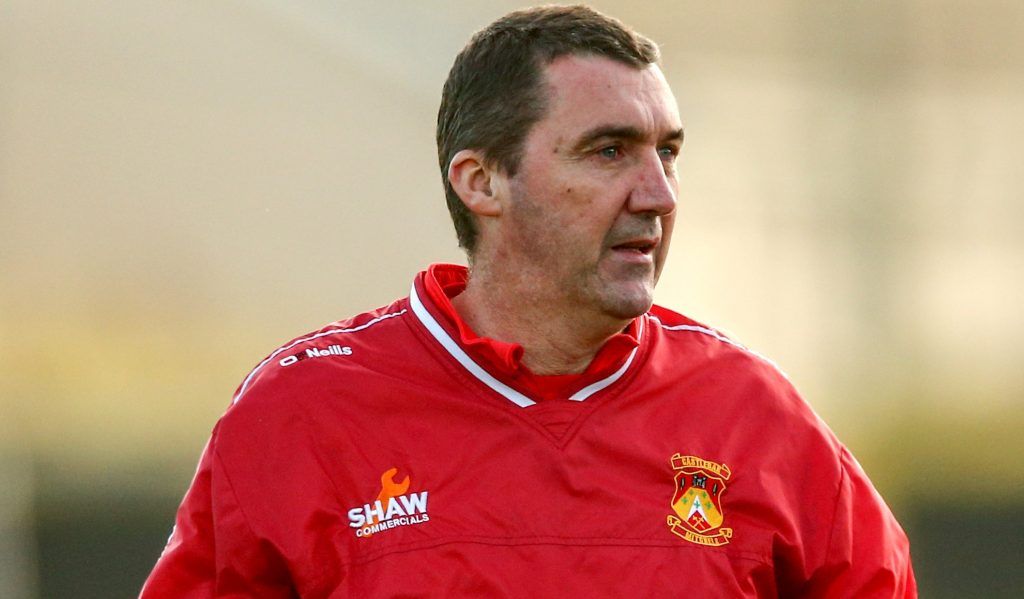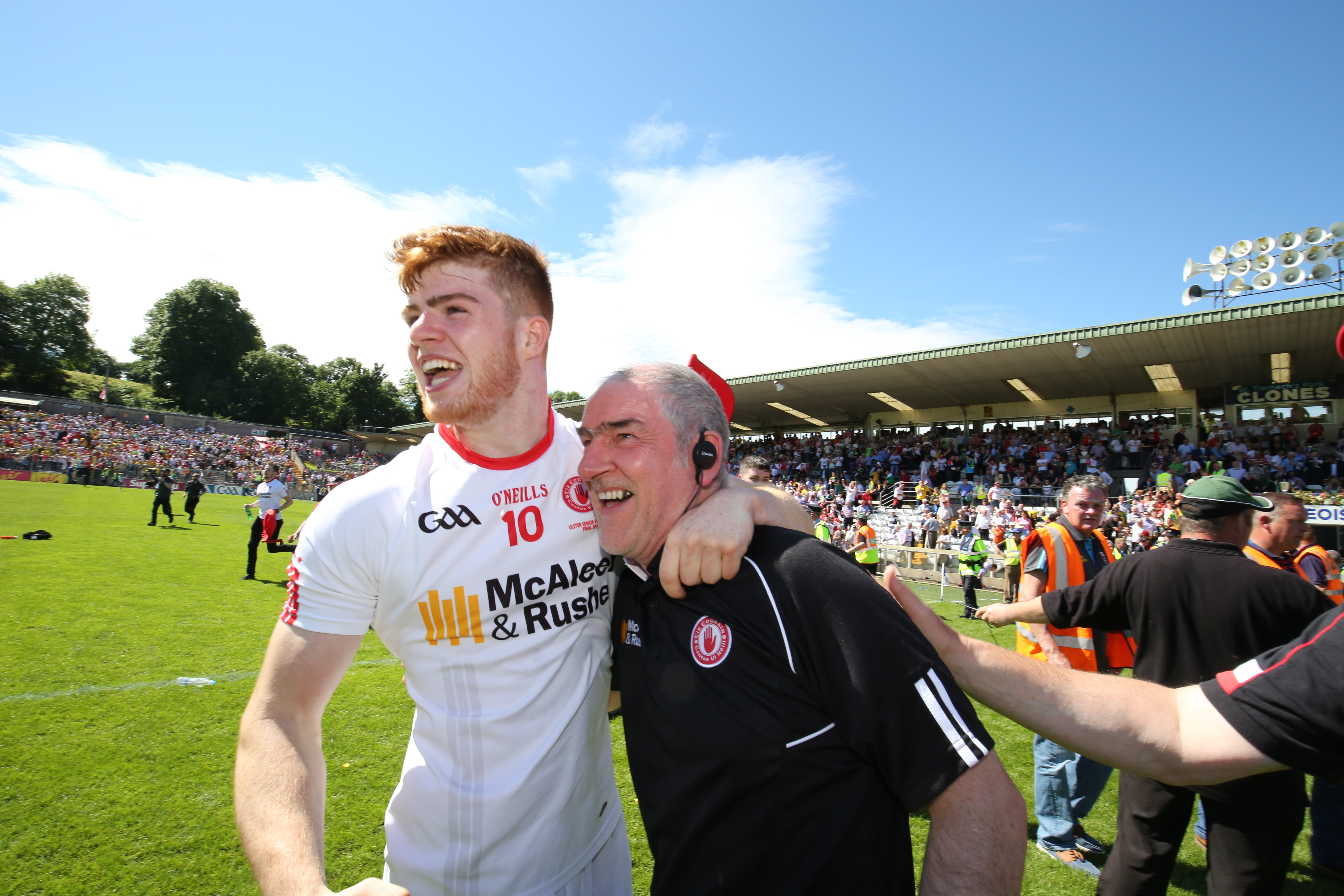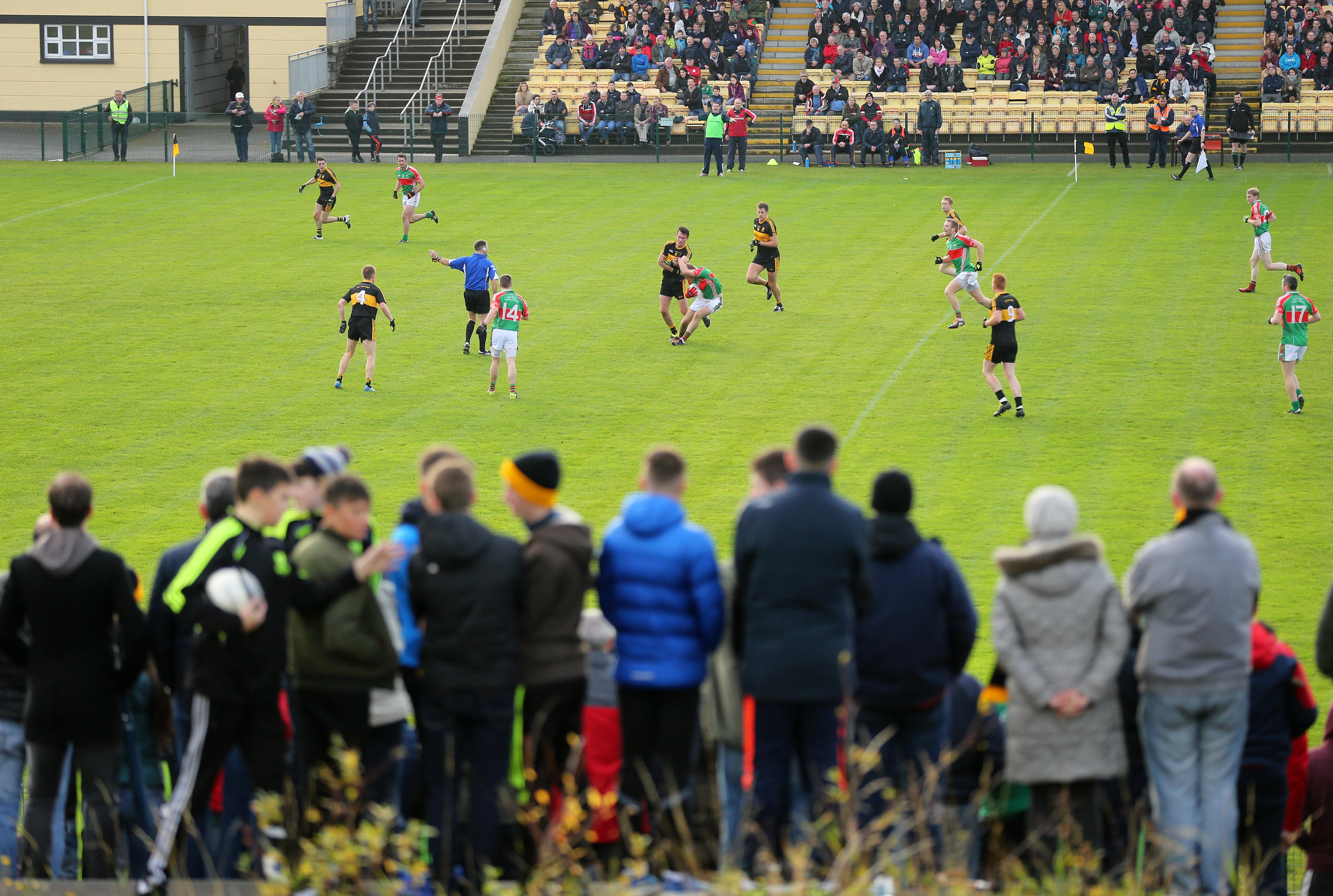

Share
15th November 2016
05:00pm GMT

I’m sure Castlebar’s joint manager Declan O’Reilly didn’t want it to sound like sour grapes after losing to Corofin at the weekend, but he had a point.
Playing six high intensity championship games in six weeks was bound to have an effect on his players when the game went to extra-time - especially coming after such a layoff during the summer.

If Declan wanted to apportion blame to anyone he should look no further than his county board who postponed a round of the club championship four weeks before the All-Ireland final.
In a joint statement the county board and the Mayo management claimed to see the problems their decision could cause.
“This has not been an easy decision for all concerned as we were faced with a Catch 22 situation. Everyone involved in Mayo GAA wishes to support the senior football team as effectively as we can in the run-up to September 18 – and, equally, everyone is fully aware of the impact a postponement at such late notice will have on club players and managements...we feel that the best interests of Mayo football will be served on this occasion by postponing the above games so that the team can prepare for the All-Ireland final."
In fairness, the pressure put on the county board from Mayo management, current Mayo players and ex-players was huge.
https://twitter.com/Caffatron/status/768051651999592448The decision was made to give the Mayo squad the best opportunity of preparing for the All-Ireland even though they had four weeks until the final and didn’t even know their opponent for the first week. This is a new phenomenon, unique to the ultra-professional era of the inter-county game. Nothing gets in the way of the scientific preparation of the inter-county squad. Nothing can break the ‘preparation chain’.
Considering Mayo also had a replay in the end, maybe breaking away from the preparation chain, from the endless focus on the match would have helped them. You could certainly argue the case anyway, but the problem is that controlling everything is seen as essential for many managers these days and when one does it, everyone has to do it.
Kilkenny hurlers play their club games before the All-Ireland every year and they haven’t done too badly. Do they have a different preparation chain to everyone else? Tyrone played club games throughout their three All-Ireland winning seasons too. Maybe Mickey Harte didn’t have a preparation chain, who knows?

County boards are being dictated to by county managers and it’s not difficult to see why. I’m confused by what the preparation chain actually means and I’m an ex-player. It’s easy to see how county boards give in to county managers throwing jargon at them and the idea they are either with them or against them. Every year the inter-county game goes a little more professional and the club game suffers as a result.
The newly established Club Players Association (CPA) has a difficult job on their hands fixing this mess. In a statement they outlined their objective as an organisation -
"The Club Players Association intends to be the voice of the club player, to protect their well-being by delivering an unchangeable meaningful fixtures programme within a shorter season for every club player"
In my opinion the CPA has two options to deliver on their objectives.
1 - Demand county boards enforce the 13-day rule that already exists in the GAA rulebook. There are enough free gaps in the existing inter-county calendar to fit club games in.
This would mean club players know their fixtures at the start of the year and they could plan around them. The power would be taken away from inter-county managers and a more amateur approach could return to the inter-county season. The preparation chain would be broken. Players would get a break from the intense environment and demands of the inter-county panel and return to their clubs throughout the summer. County finals would be played earlier as a result and provincial club championships played earlier too.
2 - Demand the inter-county season is shortened to allow more time for club games.
This would mean club championships wait until the inter-county season is over before starting. This might be the favourable option for players but it will be the most difficult to achieve. We know Páraic Duffy’s proposal to move the All-Ireland finals, in hurling and football, forward only two weeks was defeated at Congress. The CPA will not achieve option 2 without the threat of a strike from club players.
The CPA need to hold county boards to account too - many counties' club championships ran into October this year despite their inter-county team being knocked out of the championship in July. Shortening the season is a waste of time unless county boards become more efficient at running off their championships. Without reforming club structures and holding county boards to account option two won’t make much difference.

I would love to see club championships structures streamlined throughout the country. Some club championships are knockout with a back door, Dublin has a straight knockout and more have championships with round robins leading to quarter or semi-finals. I would favour the latter in every county, so that club players are guaranteed a minimum of three championship games.
The CPA’s intentions are admirable and they have some great GAA brains on board for what will be a difficult job. Deciding on, and reforming, the above will be challenging, but not impossible. The logistics of the CPA is another obstacle they need to overcome. The GPA has reps in every county panel that report back to them but the CPA will need to gauge the mood of club players from every club within each county.
Of course there is an option three – the nuclear option. This option would see both inter-county and club players enjoy uninterrupted championships throughout the Summer months. All these scheduling headaches would go away; all the pressure on county boards, players and club administrators would go away. It is the option that would solve all the problems but is the option that will be least likely to have support.

With option three, players would make a choice in January whether they want to play inter-county football or club football during that year. They would have to choose one.
Some players will choose to stick with their clubs, some will play inter-county and both championships go ahead during the summer with minimum fuss. This would solve everything but has one major obstacle – tradition. I’m sure the majority of GAA members would be horrified at the thought of players choosing between club and county.
However, if you were told 20 years ago that many club and county managers would be paid, inter-county players would train five or six times a week and not be released to their clubs, backroom teams would total nearly 30 and players lives would be controlled to the point that are not allowed drink, talk to the media or use social media you would have been laughed at.
GAA traditions are eroding every year. We need to accept that, but until we make changes for the better, things will get worse for the majority of players.